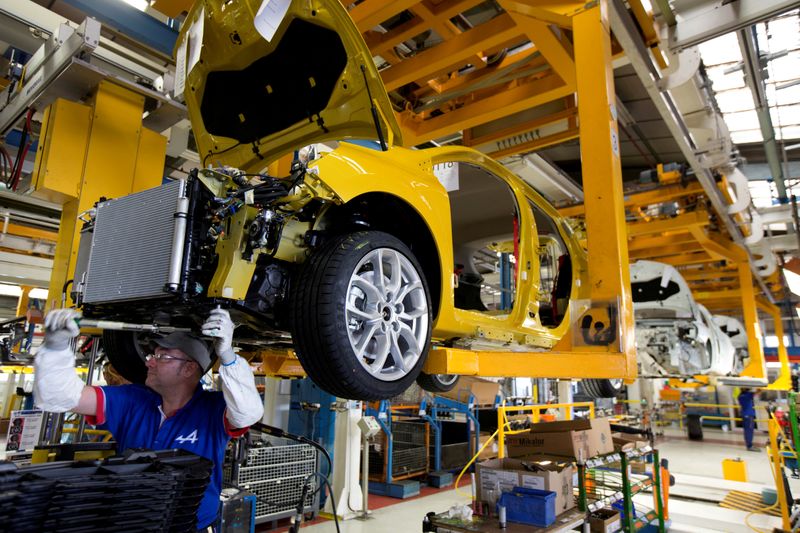LONDON (Reuters) - Euro zone factory activity contracted again in January but did so at its shallowest rate since mid-2019, according to a survey which suggested the worst may be over for the bloc's battered manufacturing industry.
IHS Markit's final manufacturing Purchasing Managers' Index rose to a nine-month high of 47.9 in January, just above a preliminary reading of 47.8 and edging closer to the 50 mark that separates growth from contraction. It was 46.3 in December.
An index measuring output that feeds into a Composite PMI, due on Wednesday and seen as a good guide of economic health, climbed to 48.0 from 46.1, its highest reading since June.
"Euro zone manufacturing started 2020 with green shoots of recovery in sight," said Chris Williamson, chief business economist at IHS Markit.
"The improvement adds to our view that the euro zone economy could see growth strengthen in the coming months, meaning the European Central Bank will hold off with any policy changes and instead focus on its strategic review."
Last month the central bank left policy unchanged but launched a broad review of its policy that is likely to see new President Christine Lagarde redefine the ECB's main goal of price stability and how to achieve it.
The ECB has struggled for years to get inflation anywhere near its just below 2% target and factories again cut prices last month. The output prices index fell to 48.6 from December's 48.9.

Forward looking indicators like new orders, quantity of purchases, employment and future output all improved last month.